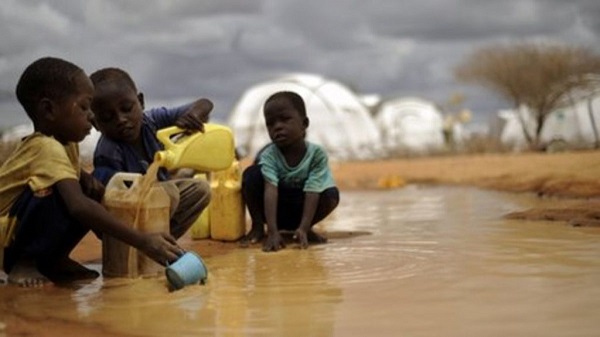
The Nigeria Centre for Disease Control (NCDC) has reported a sharp rise in cholera cases across Nigeria in 2024, with suspected cases increasing by an alarming 220% compared to the same period in 2023.
The NCDC made this known through its official website, citing its latest epidemiological report.
Cholera is an acute intestinal infection spread through contaminated food and water, primarily affecting communities with limited access to sanitation. According to the NCDC, multiple factors have contributed to the surge in cases, including ongoing conflicts, climate change, inadequate access to safe water, poor sanitation, poverty, underdevelopment, and population displacement due to natural disasters and emerging conflicts.
The report revealed that by the end of epidemiological week 39, Nigeria had recorded 10,837 suspected cholera cases and 359 deaths. This represents a 239 per cent increase in fatalities compared to the same period in 2023. The case fatality rate (CFR) for the year stands at 3.3 per cent, slightly higher than the 3.1 per cent recorded in the previous year.
“In just the past week, 198 new suspected cases were reported across five states, leading to 15 deaths and a weekly CFR of 7.6 per cent,” the NCDC noted.
The states most affected by the outbreak during week 39 include Adamawa (131 cases), Ebonyi (30 cases), Borno (29 cases), Kano (7 cases), and Jigawa (1 case). Adamawa, in particular, has remained a hotspot, with 535 suspected cases reported in the past month alone.
Lagos state has recorded the highest number of suspected cholera cases since the beginning of 2024, contributing 43 per cent of the national total. Lagos Island Local Government Area (LGA) is especially hard-hit, accounting for 5 per cent of the country’s overall cases.
The NCDC has employed rapid diagnostic tests (RDTs) and stool cultures to monitor the situation closely. “A total of 254 RDTs have been conducted, of which 175 yielded positive results, while 149 stool cultures were performed, with 103 testing positive,” the agency confirmed.
Other states, including Jigawa, Kano, Borno, and Katsina, have also reported significant case numbers, further underscoring the widespread nature of the outbreak. “Jigawa has recorded 870 cases, Kano 809, and Borno 588,” the NCDC reported.
Children under the age of five remain the most vulnerable group, followed by children between the ages of five and 14. Males make up 52 per centof the total suspected cases, while females account for 48 per cent.
The NCDC report underscores the need for ongoing vigilance and a coordinated response as the outbreak continues to spread. In response, the agency has activated a national multi-sectoral Cholera Technical Working Group to monitor and manage outbreaks across affected states.
The NCDC stressed the importance of improving sanitation, increasing access to clean water, and enhancing public health education to curb the spread of cholera. “Efforts are ongoing to strengthen health systems and improve surveillance in high-risk areas,” it said.
Public health experts are urging citizens to report suspected cholera cases and adhere to preventive measures such as proper handwashing and safe food handling to reduce the risk of transmission.
Meanwhile, the NCDC expressed concern over the prevalence of open defecation in many communities affected by the outbreak. This practice, it noted, continues to pose a significant challenge to the country’s efforts to curb the spread of cholera.
The agency also highlighted poor access to potable water and sanitation in both rural areas and urban slums, where water shortages have forced many residents to rely on water sold in jerry cans. “Inadequate water, sanitation, and hygiene (WASH) infrastructure and supplies, including insufficient wastewater management facilities, continue to exacerbate the cholera crisis,” the NCDC said.
Additionally, the agency pointed out that the shortage of skilled health personnel in many states impedes effective case management. “The lack of information, education, and communication (IEC) materials at the community level, along with inadequate consumables and supplies for case management, further hampers efforts to control the spread of the disease,” the report noted.
Logistical challenges have also affected the ability to conduct active case searches in some communities. The NCDC called for improved logistics to ensure that more communities are reached in the search for suspected cholera cases.
With cholera cases already far exceeding last year’s numbers, there is growing concern that the outbreak could worsen if immediate action is not taken. Public health experts are advocating for enhanced intervention strategies, continuous community engagement, and a more robust response to tackle the deadly disease.
For more information and updates on the cholera outbreak, the public is encouraged to visit the NCDC website or contact the agency’s toll-free helpline.
Globally, cholera outbreaks in the Middle East, South Asia, and sub-Saharan Africa have also been on the rise, with the disease spreading more widely and becoming increasingly deadly. According to a recent analysis by the World Health Organisation (WHO), deaths from diarrheal diseases soared last year, far outpacing the rise in cases.
While cholera is relatively easy to prevent and costs just pennies to treat, large outbreaks have overwhelmed even well-prepared health systems in countries that had not faced the disease in years.
The WHO report revealed that cholera deaths globally increased by 71 per cent last year compared to 2022, while the number of reported cases rose by 13 per cent. The WHO attributed much of the increase to ongoing conflicts and the impact of climate change, which have exacerbated vulnerabilities in many regions.
As Nigeria continues to battle its own cholera outbreak, public health authorities are calling for swift action to prevent further spread and minimise fatalities.

